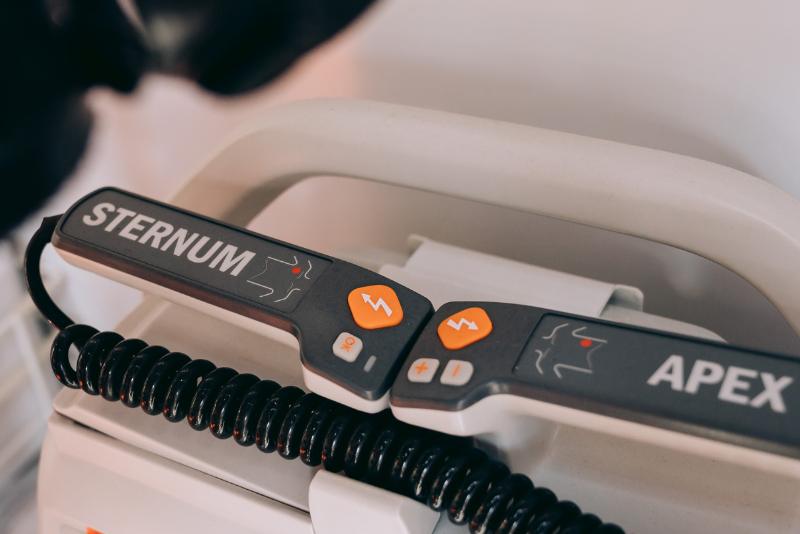This Benefit Minute discusses how Medicare Parts A and B entitlement at age 65 impacts active and retiring employees.
Entitlement to Medicare Parts A and B
An individual who attains age 65 is eligible for premium-free Medicare Part A if the individual or their spouse worked and paid Medicare taxes for at least 10 years. If an individual is receiving Social Security retirement benefits, entitlement to (enrollment in) Medicare Part A is automatic. Otherwise, an individual who is age 65 or older can sign up for Medicare Part A at any time. Part A entitlement starts 6 months back from when an individual signs up or applies for Social Security retirement benefits. However, Part A coverage does not start earlier than the month an individual turns 65.
For Medicare Part B (which requires payment of a premium), there are three separate enrollment periods:
- Initial enrollment period: the 7-month period starting 3 months before an individual turns 65, and ending 3 months after the month an individual turns 65
- Special enrollment period: the 8-month period that begins after an individual or spouse loses group health plan coverage that was primary to Medicare
- General enrollment period: January 1 to March 31 each year. In 2023, coverage will start the month after an individual signs up
An individual should not delay enrollment in Part B. A late enrollment penalty of 10% of the monthly premium will apply for each 12-month period an individual does not enroll. This penalty remains for as long as an individual has Medicare. Having other coverage through current employment (the employee or their spouse) allows an individual to delay enrollment without triggering this penalty. However, neither COBRA nor retiree coverage is considered coverage based on current employment status.
Medicare Secondary Payer (MSP) Rules
For an employer with 20 or more employees, the group health plan is primary (i.e. pays first) when a Medicare-eligible employee and/or spouse age 65 or older is covered under the group health plan by virtue of current employment status. In this case, employees and spouses enrolled in a group health plan may delay enrollment in Part A and/or Part B for as long as they are covered under the group health plan as a result of current employment. Loss of group health plan coverage upon retirement, termination or reduction in hours triggers the special enrollment period to enroll in Part B. In some cases, an individual may choose to enroll in premium-free Part A when they turn 65 and delay enrollment in Part B until the special enrollment period.
When the group health plan is primary, it must offer the same health benefits to current employees and spouses age 65 and older as offered to those under age 65. An employer cannot impose restrictions for Medicare-entitled individuals that do not apply to others enrolled in the group health plan, including terminating group health plan coverage when an individual is eligible for or enrolled in Medicare.
For an employer with less than 20 employees, Medicare is the primary payer and the group health plan is secondary. Therefore, a Medicare-eligible employee and/or spouse should enroll in Medicare Part A and Part B immediately during the initial enrollment period to ensure full coverage since the group health plan generally will not pay for medical expenses that Medicare would have paid as primary.
Medicare and COBRA
The interaction between Medicare and COBRA is complicated. If an individual who has elected COBRA has a Medicare effective date that is after the COBRA election date, COBRA coverage can be terminated, but only for the individual who enrolls in Medicare (not other covered family members). However, Medicare entitlement is not a secondary COBRA qualifying event in this situation (since it is not generally an initial qualifying event due to MSP), so covered family members are only entitled to a maximum of 18 months of COBRA.
Conversely, if an individual’s Medicare effective date is prior to the COBRA election, then they may elect and maintain COBRA coverage. Even so, COBRA is generally not the best option if eligible for Medicare due to the following:
- Medicare will be the primary coverage and COBRA will be secondary, which may result in coverage gaps if the individual is not also enrolled in both Part A and Part B.
- The 8-month Medicare special enrollment period starts when an individual loses group health plan coverage because they are no longer in current employment status, and another special enrollment period is not given when COBRA ends. Enrollment in Part B must be timely based on the date of retirement, termination or reduction in hours.
Although the COBRA statute lists Medicare entitlement as a qualifying event, it rarely will be in practice. A COBRA qualifying event is one that results in loss of eligibility for coverage, and due to the MSP Rules, a group health plan that is primary to Medicare may not cause a Medicare-entitled individual to lose eligibility. If the individual voluntarily drops group health plan coverage such that Medicare will be primary, there is no COBRA qualifying event.
There is one specific situation where Medicare entitlement may result in COBRA coverage in excess of 18 months for covered family members (not the employee). If an employee enrolls in Medicare (as secondary coverage) within 18 months before a COBRA qualifying event that is termination of employment or reduction in hours, COBRA is offered for a maximum of 18 months to the employee and for a maximum of 36 months less the number of months the employee was enrolled in Medicare before the qualifying event to other covered family members.
Medicare and Health Savings Accounts (HSA)
To make or receive HSA contributions for a month, an individual must be enrolled in a qualified high deductible health plan and not enrolled in other disqualifying health coverage which would include Medicare. Considerations for an employee enrolled in a qualified high deductible health plan include:
- If the employee enrolls in Part A at age 65, they may still make HSA contributions for any month prior to turning 65 at any point through the contribution deadline.
- The employee may choose to delay enrollment in Medicare Part A (as long as not applying for Social Security retirement benefits) and thus remain eligible to make or receive contributions to an HSA.
- If an employee delays enrollment in Part A, Medicare coverage may be retroactive up to 6 months which impacts the amount that may contributed to the HSA, so employees need to plan their contributions accordingly.
- A spouse under age 65 who is enrolled in a qualified high deductible health plan may contribute to an HSA even if the employee is enrolled in Medicare.
Funds in an HSA may be used for qualified medical expenses, including Medicare Part B premiums, after an individual is no longer enrolled in a qualified high deductible health plan.
[psa_btn href=”<a href=”https://www.psafinancial.com/wp-content/uploads/2022/12/190_November-2022.pdf” target=”_blank” rel=”noopener”></a>” target=”_blank” type=”blue”]Download a Copy of this Benefit Minute[/psa_btn]




